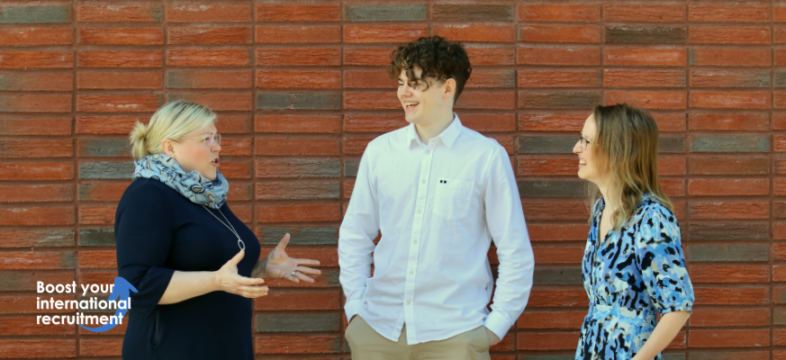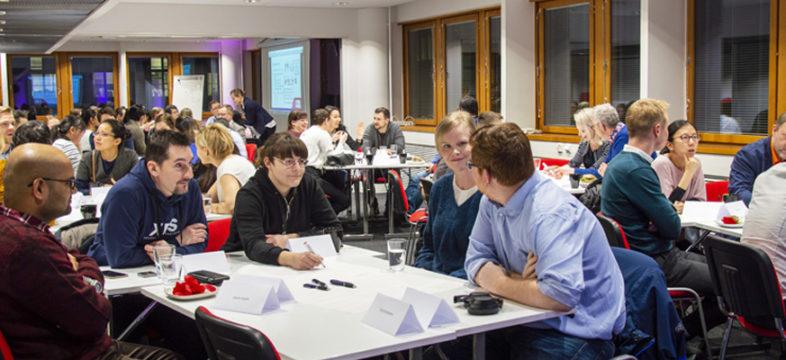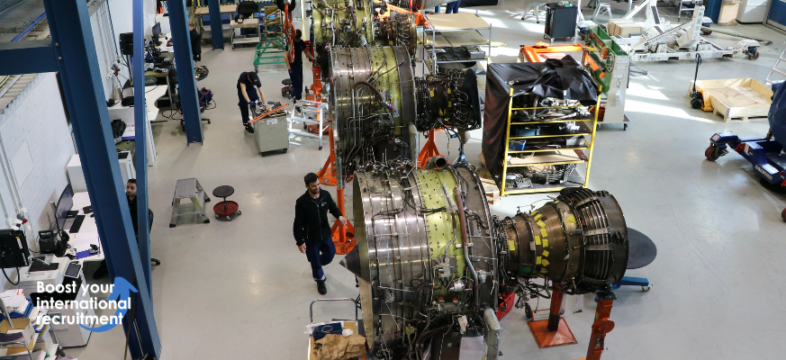
GA Telesis: A diverse workforce becomes a competitive advantage
Six employees of GA Telesis Engine Services Oy, originating from Afghanistan, China, Serbia, Turkey, Russia, and the United States, sit around a table. The entire staff repairing jet engines is just as international, comprising 250 employees of 28 different nationalities.
“Overall, we have 55 non-native Finns working with us. Most of them have moved to Finland in adulthood,” says HR specialist Alena Sivokoz.
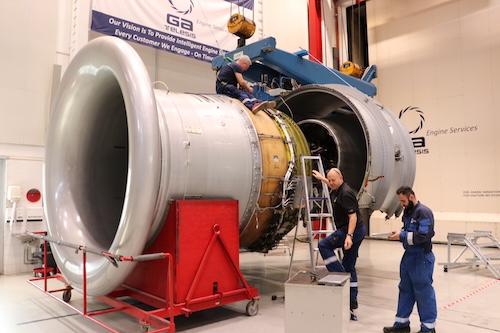
The company, based at Helsinki Airport, recruits employees from Finland, but also continually searches globally.
Aircraft mechanics graduate from several Finnish institutions, but their fundamental skills are not sufficient for demanding engine repairs. Therefore, GA Telesis organizes a six-month on-the-job training program, the GATES Trainee program, for newly arrived mechanics.
“After that, they can work under the guidance of more experienced colleagues. Only after a few years can an employee start performing tasks independently,” explains HR manager Galina Alkvist.
A diverse team yields results
Alkvist notes that, in addition to personal skills, each employee brings the strengths of their own culture to the company.
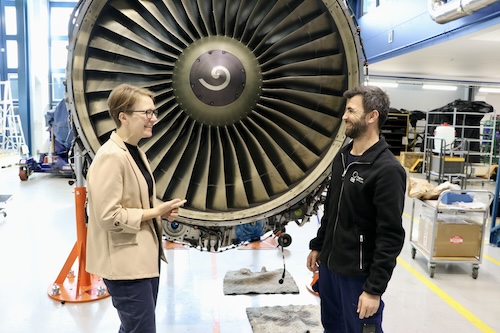
“We strive to utilize these as well as possible. Diversity facilitates problem-solving and helps us to view issues from various perspectives,” she says.
International studies have also shown that diversity can bring financial benefits to a company, as it usually increases productivity and innovation.
Alena Sivokoz has observed that a diverse workforce also makes it easier for a range of different people to join the company. For example, GA Telesis has successfully recruited foreign nationals living in Finland.
“Our experience shows that they are very motivated and committed to their work,” she notes.
Rishi Maharaj, GA Telesis’s Customer Support Account Manager, moved from the United States to Finland three years ago. He believes that, in particular, companies targeting international markets should recruit employees from foreign backgrounds.
“It greatly facilitates business if the team includes someone from the target markets,” he says.
Specialists sought globally
Jet engine overhaul takes several months, but GA Telesis also offers quicker repair services at Helsinki Airport, lasting a few weeks. For this, the company established a separate department three years ago, recruiting workers from abroad.
“We needed professionals with the necessary skills and licenses already in place. They were not available in Finland,” Alkvist explains.
The company advertised open positions worldwide. Recently closed jet engine repair shops in Poland provided an opportunity to attract several international workers to Finland.
Among them was Umut Cur from Turkey. He says that Finland has a good reputation, but he explored job opportunities in other European countries before deciding to move.
“Finland had the advantage of being easier to integrate into, and support for settling in was readily available. For instance, language training was immediately offered to my non-Finnish speaking spouse,” Cur shares.
Enes Dzaferi, a Serbian who previously worked as a jet engine mechanic in Poland, also found settling in Finland easier.
“Outside of work in Poland, it’s difficult to manage if you don’t speak Polish. In Finland, I don’t feel as much of an outsider, as English is widely spoken here. However, understanding introverted Finns and adapting to local culture takes time,” Dzaferi says.
Support for settling in Finland
GA Telesis offers so-called relocation services to employees moving to Finland, assisting with settling in and managing practical matters.
The company can help with moving arrangements, housing search, and support with taxation, bank account opening, and various kinds of registration.
“We try to make settling in Finland as easy as possible so that the employee can focus on their work. An external consultant assists us with the relocation services,” says Alkvist.
Effective leadership is key
However, diverse individuals alone do not guarantee a company’s success. Supervisors have a special responsibility to ensure that the workplace fosters and benefits from a culture of diversity.
Aarno Hakanen, who leads the newly established department with two-thirds of its 15 employees from abroad, notes that leading an international team requires the same principles as leading a team of native Finns. It involves a balance of control and responsibility – sharing, treating everyone equally and being flexible on both sides.
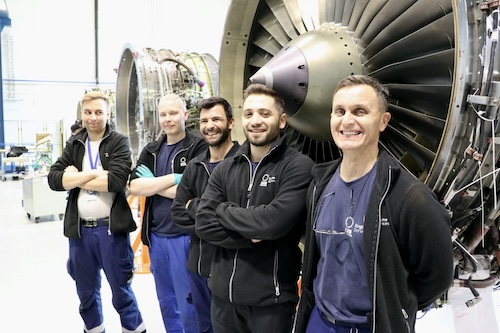
Suvi Vilen, who leads the Commercial and Customer Support team, believes that the personal traits of employees are more important than their ethnic background. However, interpreting people can be more challenging in an international team.
“Different cultures may have their own traits. Some might be reserved and hesitate to ask questions, while others are very open and seek more social interaction and communication. It’s the supervisor’s job to lead their subordinates considering all these aspects,” Vilen points out.
Boost your international recruitment
In this series, we highlight good practices and lessons learned from companies and organizations that invest in the growth and competitiveness of their organizations by recruiting international talent. We want to support and encourage Finns and Finnish organizations to create a truly open, diverse, and equal work culture.
More information: Johanna Larsson, johanna.larsson@helsinki.chamber.fi

